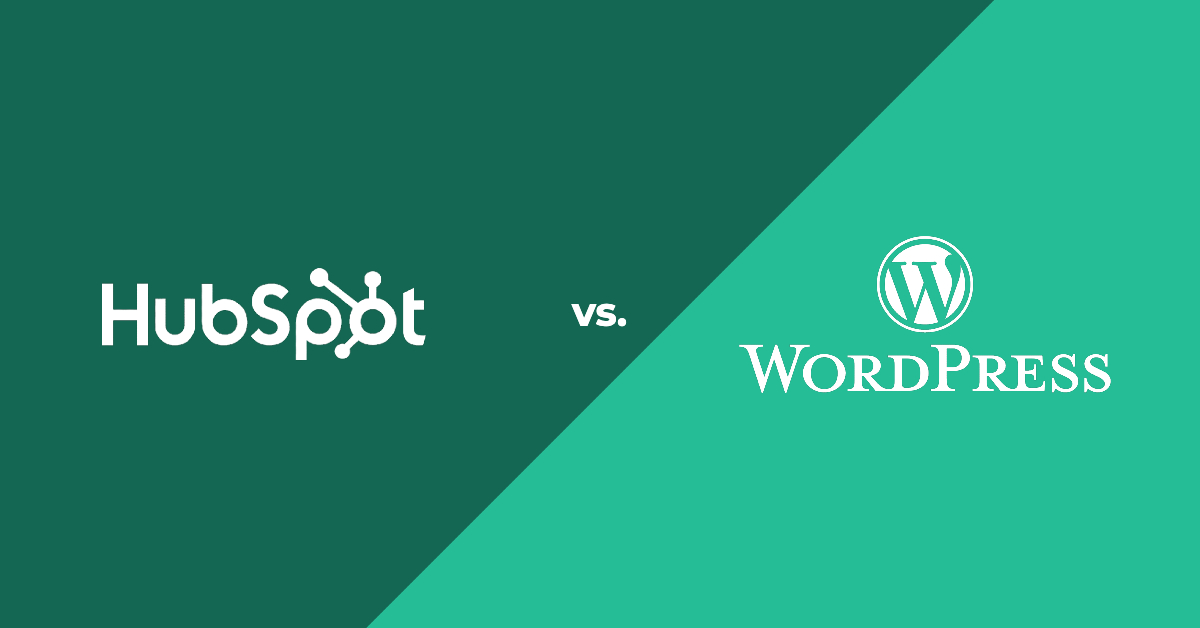Where do you start with a conversation about WordPress Vs HubSpot CMS? Let's face it, Wordpress is an excellent web platform. Pretty much everyone is on it, and we have had WordPress sites ourselves with no issues at all, in fact, as you'd expect from the market leader, with very good success. And the chances are, you might not even realise HubSpot offer a CMS product anyway!
What is a CMS?
A CMS, or content management system, is a way to control the content that you publish through your website. It allows you to design the look, build the functionality and create the copy and images that make up the pages of your website. It interacts with your web hosting platform to make sure the world gets to see the vision you have for your websites design and allows for interaction and engagement via comments, shares, live chat and so on.
There are a number of CMS platforms out there that allow you to build your website, and they come in all sorts of shapes and sizes. From the 'off the shelf', ready in a few hours providers like Wix or Squarespace, through to high powered CMS for enterprise businesses like Sitecore or Drupal.
At the 'top' of the lower level is the self hosted WordPress site. The idea behind WordPress is for a site with the ease of use of a Wix or a Squarespace, and the flexibility of something much more powerful. WordPress nails this, but isn't without its issues.
Where Does HubSpot CMS fit?
HubSpot CMS is designed to sit 'above' WordPress in terms of function and ease of use. But below the more powerful ECMS or Enterprise CMS platforms.
The reality is, using HubSpot for a CMS platform for your business or not will hinge on what your main objectives are. Like all powerful tools, HubSpot CMS is perfect, when its perfect. But it's potentially overkill for some solutions and maybe not powerful enough (yet) for others.
There is one major beneficiary of the HubSpot CMS and thats the marketer. HubSpot is designed to seamlessly integrate with its own CRM, sales, marketing and service tools, and if thats what you need, its hard to beat.
WordPress Vs HubSpot CMS
Where HubSpot wins for the marketer is that many of the tools required by the marketing team, such as SEO research, landing page builders, forms builders, CTA builders, campaign based reporting, spilt and multivariate testing and so on are all available out of the box.
Not only that, but the data in your system all lies in the HubSpot CRM, whether thats organic visitors, brought in through ads, social media, email or any other of your Inbound tactics, the same record is getting updated across the whole pixel estate. There are no integrations to perform between your email, landing pages, social media and CRM software.
While WordPress plugins certainly offer similar functionality, it's a task in itself to build your tech stack and make sure it all plays nicely together. The WordPress marketer also has to contend with a bunch of different UI's in each of the different tools, and of course, the curse of WordPress, the constant security threat from hackers and the subsequent requirements to keep updating the platform and its plugins, which feels like almost daily.
IT teams love HubSpot CMS too
We all love the IT teams in our businesses, but we can get frustrated when they take those decisions to keep us safe, that also add friction to our processes. Things like 2FA is high on the list here, or the forbidding of some URLs, usually the ones we need to do the job.
IT teams love the HubSpot hosted CMS solution because it comes with 24/7 threat detection, CDN and custom CDN configuration, a SSL for your site as standard, activity logging and partitioning, site monitoring and reverse proxy support. More details here.
And Dev teams love it as well
Internal Dev teams or external contractors, love the power they get with HubSpot CMS like serverless functions, local website development, Website themes, Dynamic content and HubDB, code alerts and an extensive developer documentation and community.
You can see our more detailed breakdown of WordPress Vs HubSpot CMS here, but suffice to say, if you are a marketer, or your website is a marketing website, then don't just jump on the WordPress bandwagon - take a look at the HubSpot CMS first. And that goes double if you are already using HubSpot for CRM, sales, marketing or service tools.






